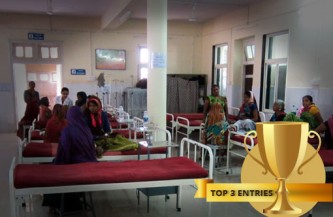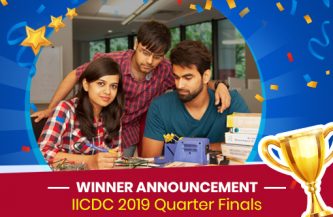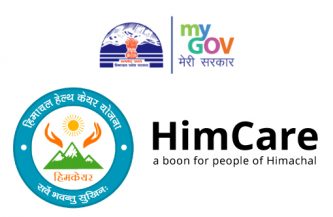Citizens Consultation for the Smart Cities Mission

On 25 June 2015, Prime Minister Shri Narendra Modi launched the Smart Cities Mission to enable the holistic development of Indian cities. This bold new initiative under the Ministry of Urban Development (MoUD) aims to drive economic growth and improve the quality of life of people by enabling local development and harnessing technology as a means to create smart outcomes for citizens. According to MoUD, the core elements of a Smart City include: adequate water and electricity supply, suitable sanitation and solid waste management, efficient public transportation, affordable housing, robust IT connectivity and digitalization, e-governance with citizen participation, sustainable environment, and safety and security of citizens with health and education for all. These objectives are proposed to be attained through a judicious mix of retrofitting, redevelopment and greenfield development.
Citizen consultation is an important pillar of the first phase of the Smart Cities Mission. The Ministry encouraged local governments to engage citizens as they worked on their city’s Smart City Proposal, and recommended MyGov as the core platform for citizen consultation. Municipal governments supplemented their online MyGov activities with meetings, discussions, and other public interactions in their respective cities.
MyGov facilitated citizen consultation for the Smart Cities Mission in two stages. During the first round, it offered cities a range of citizen consultation methodologies, such as discussion forums, tasks, online polls, public talks, and blogs. These tools served as a catalyst for citizens to participate in the Smart Cities Mission and the competition, also known as the India Smart Cities Challenge, and offer suggestions for the development of their city.


During the second round of the Smart Cities Mission, municipal authorities from the shortlisted cities used MyGov to collect suggestions from citizens on their vision for a Smart City to incorporate these into draft proposals. Of the 98 cities, 57 put the draft proposals online for further comments and inputs from the public. Overall, the proposals received a total of 1,42,895 comments.
The 98 cities adopted a range of measures to encourage citizen engagement. Municipalities reached out to young citizens by visiting schools and colleges to educate them about the Mission. Municipal corporations used popular social networking platforms like Facebook and Twitter to spread awareness about the mission. Still others created dedicated websites with detailed updates on progress. SMS campaigns, voice message campaigns, and airtime on radio channels helped expand a municipality’s reach. Many cities even created free Wi-Fi hotspots in crowded areas so that people could access Internet and submit suggestions. Advertisements in newspapers, pamphlets, hoardings, and the MyGov app played a significant role in making the Smart City Mission a nationwide phenomenon.
The Smart Cities Mission – MyGov collaboration is an unprecedented exercise in urban planning, which has transformed planning from a top-down centralized activity into a democratic consultative process, taking the citizens’ perspective as the foundation stone on which the city plan is built. MyGov looks forward to partnering with more cities and citizens in the subsequent rounds of the Smart Cities Mission play its part in developing Smart Cities across India.
– Gaurav Dwivedi,
CEO, MyGov
Total Comments - 158
Leave a Reply
You must be logged in to post a comment.





 Login
Login
Sir,
Smart city is a great idea, but what I think is that firstly we should spend the money on underdeveloped or rural areas rather than developing a fairly developed cities. There are areas in this country where getting basic necessities is a great deal for them. For overall development we should develop the underdeveloped areas first.
Thanking you,
Sudhanshu Gera
Sir here are my some humble suggestions there are many of the antieconomic things going on in and around us like profeetering where the the farmers get almost nothing so please do develop an app with accordance to price to stop these antieconomic activitdd
Dear sir my concerned about city clean if city will clean by automatic cleaner broom there city will clean more efficiently.by men city is not proper clean and they donot work properly and cause of dust pollution and make city ugly if city will clean everyone will proud and confident .no pavement in city side of road broken made city dirty and dusty
Smart cities must be having temples run by trusts. The same are to be active in developing the city. Like poor feeding, cleanliness of the vicinity of about 5 to 10 kms around the temple. They have to adopt the city for funding from the trust for various activities such as technical education to the needy free of cost. Run hospitals for senior citizens. xdeveloping our culture. The temples should have ornamental works from various top archetects/ consultant for making the city as a tourist cit
primi minister ji.. Namaste..This is venkata rao, retd bankers, nationalised bank.
Temple trusts, both private and endowment department trust be taken as partners for improvement of SMART CITIES. tEMPLES ANY HOW PROVIDING lunch to piligrims. Retired people can be taken into confidence to be involved as advisors / work force to the temple trusts. The lands belonging to temples should be used only for organic farming. The nearest Ag. university should adopt the lands and put the usage .
The major problem that a smart city can face in the near future can be the problem of potable water as the water table is going down.And this can be a hurdle in the way of smart city.The problem can be solved by digging soak pits on the sides of the roads and also in the premises of newly constructed buildings and houses.This can also solve the problem of water lodging and can prevent floods which we have experienced in chennai last year.
Smart cities should have separate organic and inorganic dustbins. There should be a provision to use organic waste for making fertilizer and inorganic waste should be recycled at one place to keep cities clean.
we hope smart city mission will be able to create construct and develop our digital dream cities healthy happy clean real human cities.SMART CITY is not only a need but a necessity of nation.it’s a head and heart of modern life.a center of opportunity and employment progress and prosperity
.
Sir, I have technique to provide green energy 24*7 that too in less area as compared to others.
In Smart Cities more focus should be on robust transport systems,space for gardens & playgrounds,clean purified water & healthcare facilities,24*7 power & Free WIFI.Emphasis on affordable housing for all class of society.